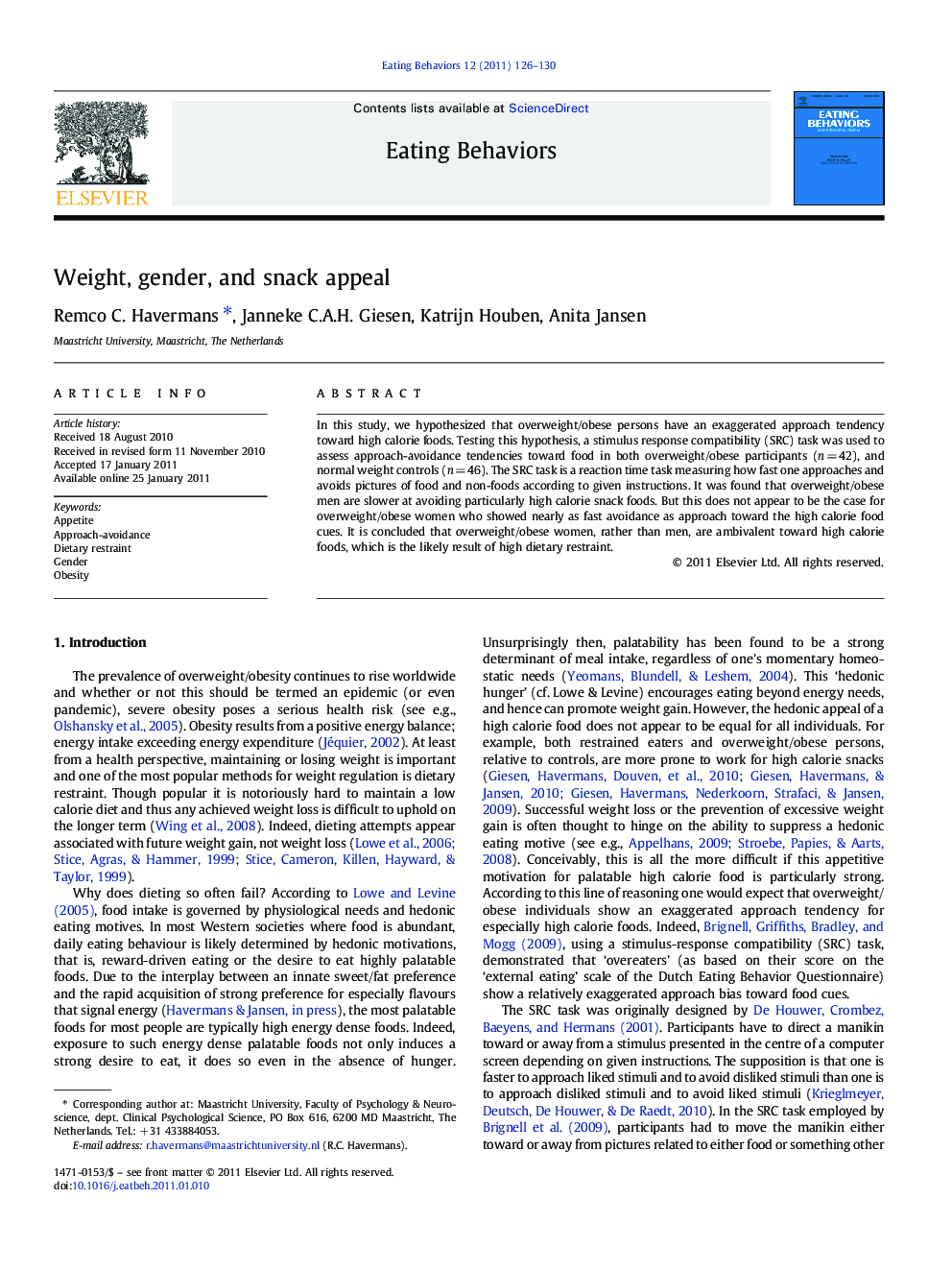| Article ID | Journal | Published Year | Pages | File Type |
|---|---|---|---|---|
| 906610 | Eating Behaviors | 2011 | 5 Pages |
In this study, we hypothesized that overweight/obese persons have an exaggerated approach tendency toward high calorie foods. Testing this hypothesis, a stimulus response compatibility (SRC) task was used to assess approach-avoidance tendencies toward food in both overweight/obese participants (n = 42), and normal weight controls (n = 46). The SRC task is a reaction time task measuring how fast one approaches and avoids pictures of food and non-foods according to given instructions. It was found that overweight/obese men are slower at avoiding particularly high calorie snack foods. But this does not appear to be the case for overweight/obese women who showed nearly as fast avoidance as approach toward the high calorie food cues. It is concluded that overweight/obese women, rather than men, are ambivalent toward high calorie foods, which is the likely result of high dietary restraint.
Research Highlights► Do overweight individuals show an approach bias toward snack foods? ► A reaction time task to assess approach-avoidance motivation was used. ► The male overweight/obese participants were slower to avoid high calorie food. ► Overweight/obese women, much more than men, are ambivalent toward snack foods.
